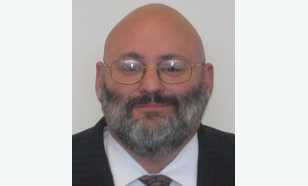Leonard Deutchman

February 03, 2015 | The Legal Intelligencer
E-Discovery Rule Changes Don't Get to Problem's HeartAt the close of 2014, readers of media discussing the intersection of the law and information technology were offered dozens of pieces summing up the past year and predicting what the future holds for us. Some pieces, of course, were better than others, and I have no interest in reviewing or ranking them. What struck me about them is the assumption underlying all of them that things have changed.
By Leonard Deutchman
9 minute read

February 02, 2015 | The Legal Intelligencer
E-Discovery Rule Changes Don't Get to Problem's HeartAt the close of 2014, readers of media discussing the intersection of the law and information technology were offered dozens of pieces summing up the past year and predicting what the future holds for us. Some pieces, of course, were better than others, and I have no interest in reviewing or ranking them. What struck me about them is the assumption underlying all of them that things have changed.
By Leonard Deutchman
9 minute read

January 06, 2015 | The Legal Intelligencer
Information Security: The Last Next Big Thing Is Getting BiggerThe story of North Korea allegedly hacking into Sony's IT infrastructure and sending Sony a threatening email that led it to cancel the distribution of a new film, "The Interview," a comedy-adventure film about two Americans who land an interview with North Korean leader Kim Jong-un, dominated the news as 2014 winded down.
By Leonard Deutchman
9 minute read

January 05, 2015 | The Legal Intelligencer
Information Security: The Last Next Big Thing Is Getting BiggerThe story of North Korea allegedly hacking into Sony's IT infrastructure and sending Sony a threatening email that led it to cancel the distribution of a new film, "The Interview," a comedy-adventure film about two Americans who land an interview with North Korean leader Kim Jong-un, dominated the news as 2014 winded down.
By Leonard Deutchman
9 minute read

December 02, 2014 | The Legal Intelligencer
Are Attorney Fee Awards in E-Discovery Cases on the Rise?In this month's column, I am not going to discuss this or that last esoteric digital search case. Rather, I am going to discuss something with which everyone reading this column should long be familiar: financial sanctions.
By Leonard Deutchman
10 minute read

November 04, 2014 | The Legal Intelligencer
Authenticating ESI—Yours, Theirs and a Third Party'sSo much attention is paid to gathering, processing, searching, reviewing and producing electronically stored information that the issue of how to get it admitted into evidence is often overlooked. In this month's column, we'll discuss authenticating ESI.
By Leonard Deutchman
9 minute read

October 07, 2014 | The Legal Intelligencer
Extraterritorial Searches for Electronically Stored InformationOn Sept. 18, Sen. Orrin Hatch, R-Utah, along with Sens. Chris Coons, D-Del., and Dean Heller, R-Nev., introduced the Law Enforcement Access to Data Stored Abroad Act, or the LEADS Act, to amend the Electronic Communications Privacy Act and Stored Communications Act, 18 U.S.C. §§ 2701-2712, to, inter alia, require providers served with a search warrant to disclose the materials sought by a warrant "regardless of where such contents may be," if the account holder at issue is "a United States person" and such disclosure will not "violate the laws of a foreign country."
By Leonard Deutchman
10 minute read

September 02, 2014 | The Legal Intelligencer
Courts Recognize the Importance of Cooperation in E-DiscoveryIn Boston Scientific v. Lee, No. 1:13-cv-13156-DJC (N.D. Cal. August 4, 2014), the court addressed two areas of e-discovery of particular interest: the need for cooperation in conducting e-discovery successfully, and the digital forensic investigative steps frequently taken when a high-level employee leaves a company to start or join a rival and is suspected of taking with him or her important intellectual property—what I refer to as "departing employee triage," or DET.
By Leonard Deutchman
9 minute read

August 05, 2014 | The Legal Intelligencer
Supreme Court Misses a Chance to Address Difficult Privacy QuestionIn Riley v. California and United States v. Wurie, 189 L.Ed. 2d 430 (2014), a unanimous U.S. Supreme Court held that the warrantless searches of the contents of cellphones seized from a person were not proper as searches incident to arrest and so, absent exigent circumstances particular to the matter, they were a violation of the Fourth Amendment.
By Leonard Deutchman
10 minute read

July 01, 2014 | The Legal Intelligencer
Privacy in Public? Eleventh Circuit Finds It ProtectedIn United States v. Davis, No. 12-12928 (11th Cir. June 11, 2014), the U.S. Court of Appeals for the Eleventh Circuit held, inter alia, that the Fourth Amendment required that law enforcement obtain a search warrant to obtain from a cellphone provider cell site tracking information pertaining to a subject's phone.
By Leonard Deutchman
9 minute read
Trending Stories
- 1$1.9M Settlement Approved in Class Suit Over Vacant Property Fees
- 2Former Wamco Exec Charged With $600M 'Cherry-Picking' Fraud
- 3Stock Trading App Robinhood Hit With Privacy Class Action 1 Month After Alleged Data Breach
- 4NY High Court Returns Fired Priest's Discrimination Claim to State Agency
- 5Digging Deep to Mitigate Risk in Lithium Mine Venture Wins GM Legal Department of the Year Award
More from ALM
- Legal Speak at General Counsel Conference East 2024: Match Group's Katie Dugan & Herrick's Carol Goodman 1 minute read
- Legal Speak at General Counsel Conference East 2024: Eric Wall, Executive VP, Syllo 1 minute read
- Legal Speak at General Counsel Conference East 2024: Virginia Griffith, Director of Business Development at OutsideGC 1 minute read



